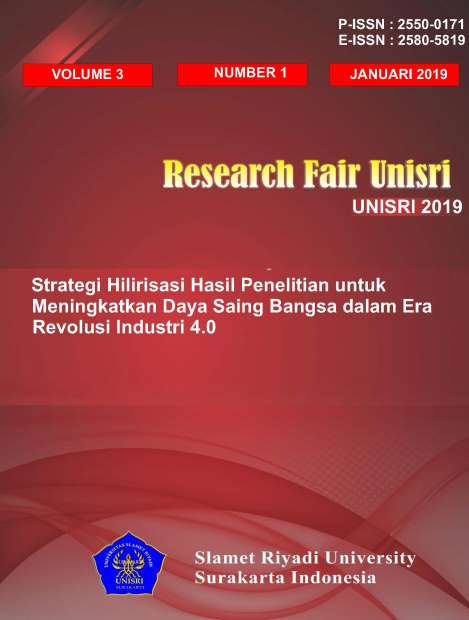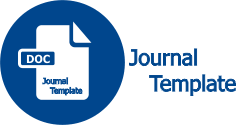PELAKSANAAN E-RETRIBUSI PEDAGANG PASAR TRADISIONAL DI SURAKARTA
DOI:
https://doi.org/10.33061/rsfu.v3i1.2596Abstract
This paper aims to examine the implementation of e-Government as the payment system for merchants non cash levy compulsory levies in the traditional market Surakarta areas. Methods of analysis will be directed description and explanation in detail on the phenomenon of business communication platform between entrepreneur and Government bureaucrats on the traditional market Surakarta City. The qualitative data gathered from in-depth interviews with informants in order to explore the case which happened on implenteasi e-government policy is the traditional market in the city of Surakarta. A semi structured interview against the business or market traders deliberately chosen in order to give a chance to the informant in giving information freely and flexibly so that it does not cover the possibility of explore information other hidden for follow up by the researchers then confirmed with a competent source. The research results reveal that the policy e-levy not fully be implemented in traditional market traders despite the non cash payment system memperikan the many benefits to the Government of the city of Surakarta in particular Office Of The Manager Of The Market. With e-Government is no certainty and guarantee the efficiency and the effectiveness of the withdrawal of levy. On the other hand the system of e-Government will encourage traditional market traders to know the modern financial management systems including non-payment of cash by involving banking. However, for such a low USD traders traders kept rolling out five times are uncertain then e-retribution is perceived as aggravating because forcing them to open a banking account as deposits technical provisions as a condition of being able to adopt a system based on information technology.Keywords : e-Retribution, Traditional Market, non-Cash Payment.
Downloads
Published
2019-01-11
Issue
Section
Artikel
License
- Hak publikasi atas semua materi informasi yang tercantum dalam situs jurnal ini dipegang oleh dewan redaksi/editor dengan sepengetahuan penulis. Pengelola Jurnal akan menjunjung tinggi hak moral penulis.
- Aspek legal formal terhadap akses setiap informasi dan artikel yang tercantum dalam situs jurnal ini mengacu pada ketentuan lisensi Creative Commons Atribusi-NonCommercial-No Derivative (CC BY-NC-ND), yang berarti bahwa hanya dengan izin penulis, informasi dan artikel Jurnal PKM dapat didistribusikan ke pihak lain dengan tanpa merubah bentuk aslinya untuk tujuan non-komersial.
- Setiap terbitan Jurnal PKM, baik cetak maupun elektronik, bersifat open access untuk tujuan pendidikan, penelitian, dan perpustakaan. Di luar tujuan tersebut, penerbit atau pengelola jurnal tidak bertanggung jawab atas terjadinya pelanggaran hak cipta yang dilakukan oleh pembaca atau pengakses.




















